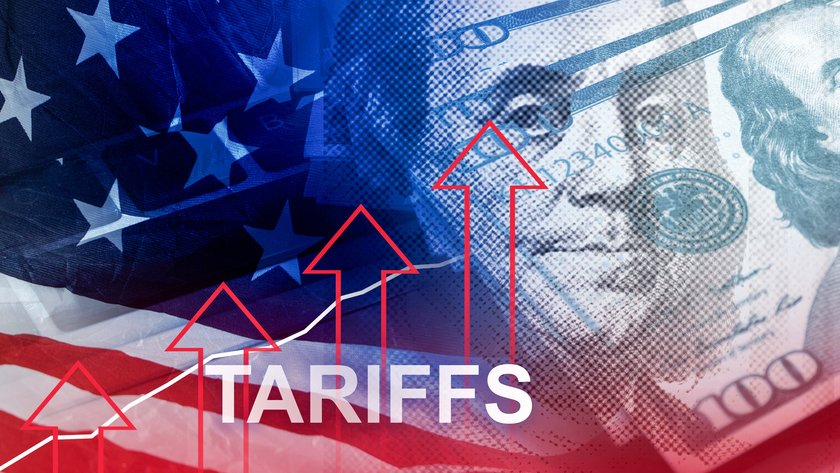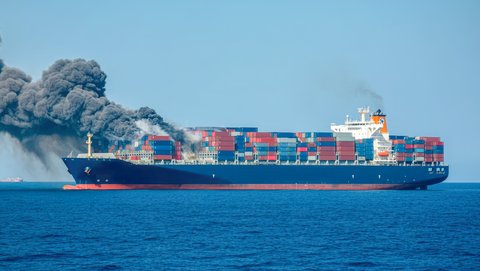In a year marked by geopolitical volatility and economic uncertainty, tariffs have re-emerged as a defining force in the world of logistics. Tariffs, taxes on imported goods, have lately risen in importance mostly due to developments in tariff policy from the United States. These developments are reshaping supply chains globally. For logistics professionals, this means navigating a more complex, volatile, and politically charged environment, where agility is no longer optional.
Tariffs as an Uncertain Risk to Companies
According to the Allianz Trade Global Survey 2025 about 60% of companies expect a negative impact on their business, and 42% anticipate a turnover decline of up to –10%, following the U.S. “Liberation Day” policy shift.
Export optimism has halved, while nearly 30% of companies are considering halting production or offshore sourcing due to cost and foreign exchange volatility.
Meanwhile, 48% of exporters anticipate increased non-payment risk, with the U.S., UK, and Italy showing the highest concern. As a result, rerouting shipments and rethinking supply chains have become urgent priorities for many.
Uneven Impact Across Business Sizes
While tariffs apply universally, their effects are not equal to every business. Large corporations that operate in multiple countries often have the resources to shift production, absorb costs, or navigate complex compliance requirements.
Small and medium-sized enterprises, however, often lack these resources:
- Limited capacity to navigate customs and secure exemptions
- Difficulty in absorbing rising costs
- Compliance requirements pull focus from core business activities
For small and medium-sized businesses, the challenge is not just surviving tariff shocks, it’s turning them into strategic opportunities.
The Rise of Non-Tariff Barriers
Tariffs are only part of the story. A growing web of non-tariff barriers, from forced labor disclosures to carbon border taxes, is adding new layers of complexity to global trade:
- Environmental regulations are tightening: the Mediterranean Sea became an official Emission Control Area (ECA) in May 2025
- EU’s ICS2 system mandates detailed pre-arrival cargo data, including HS codes and transport routes, to improve security and streamline customs clearance
- IMDG Code updates (mandatory from 2026) introduce stricter rules for transporting hazardous goods, including lithium-ion batteries and charcoal
- Customs authorities now demand comprehensive documentation and proof of compliance before goods can move
These regulations are slowing down shipments, increasing costs, and creating new bottlenecks. For logistics professionals, this means that customs strategy is now as critical as route planning or carrier selection. Trade compliance is no longer just an administrative task, it is a competitive advantage.
Strategic Responses: From Flexibility to Forward Planning
As tariff pressures mount, businesses are responding with agility. Free Trade Zones are gaining popularity as a way to defer duties, while flexible routing and mode-switching are helping companies stay ahead of disruption.
Many of our warehouses and logistics centers are strategically located in such Free Trade Zones or bonded areas. They are purposefully designed to buffer supply chain risks of our customers, especially during these times.
The global Leschaco network supports these strategies with tailored solutions, from LCL (Less-than-Container Load) services for cost-sensitive shipments to express Air Freight and Rail options for time-critical cargo. LCL gives shippers more flexibility by allowing them to move only the inventory they actually need to meet customer demand, helping avoid unnecessary storage costs and reduce tax exposure per shipment.
Our LLP and 4PL solutions can also assist you by providing a fully integrated approach, designed to streamline operations, enhance efficiency, and empower you with data driven insights.
Looking Ahead
As tariff activity continues to dominate headlines, businesses must stay informed and prepared. The future of trade may be uncertain, but with the right strategies, companies can navigate the turbulence and not just react to it.
In today’s trade environment, adaptability is no longer optional, it’s a competitive edge; and the ideal logistics partner can make all the difference.







